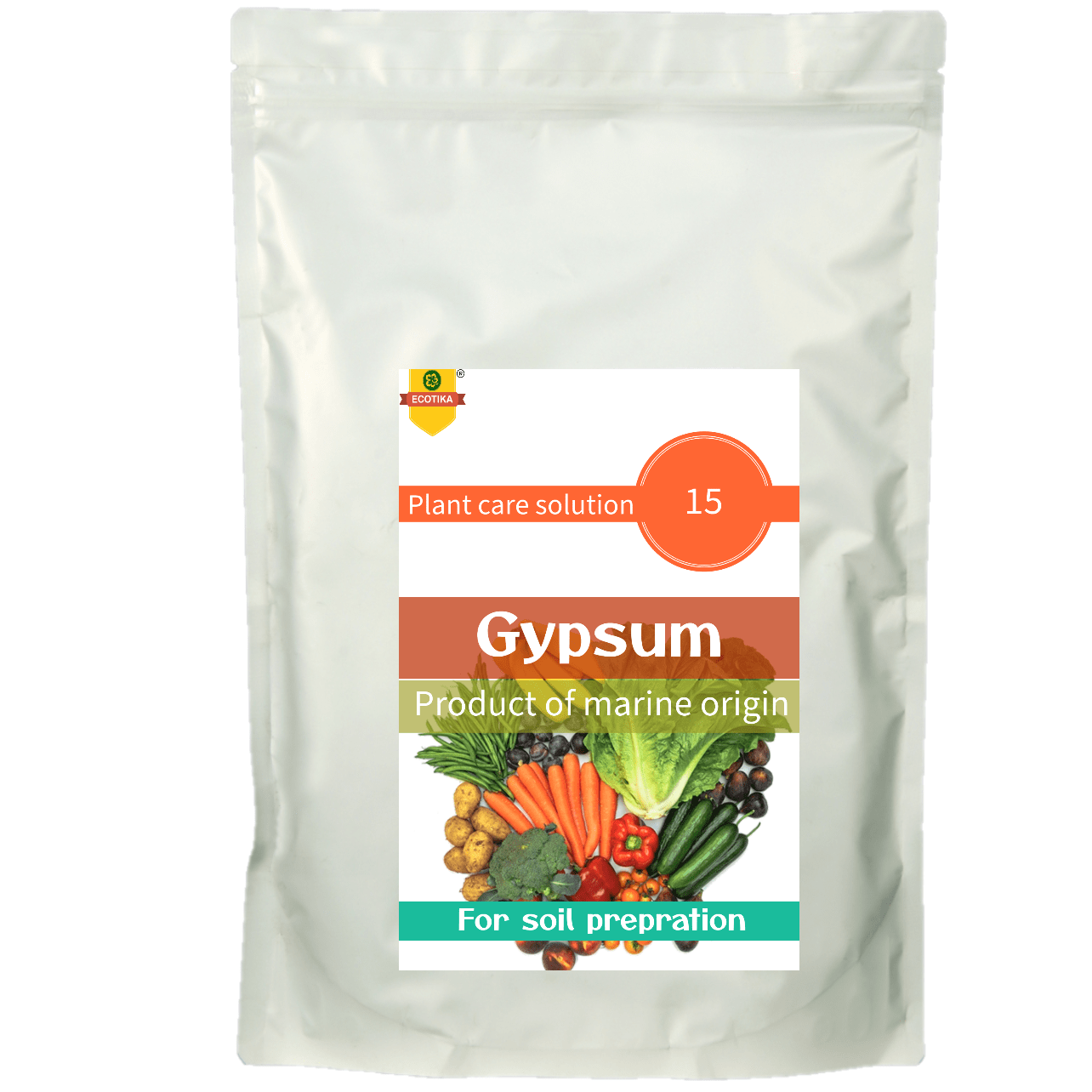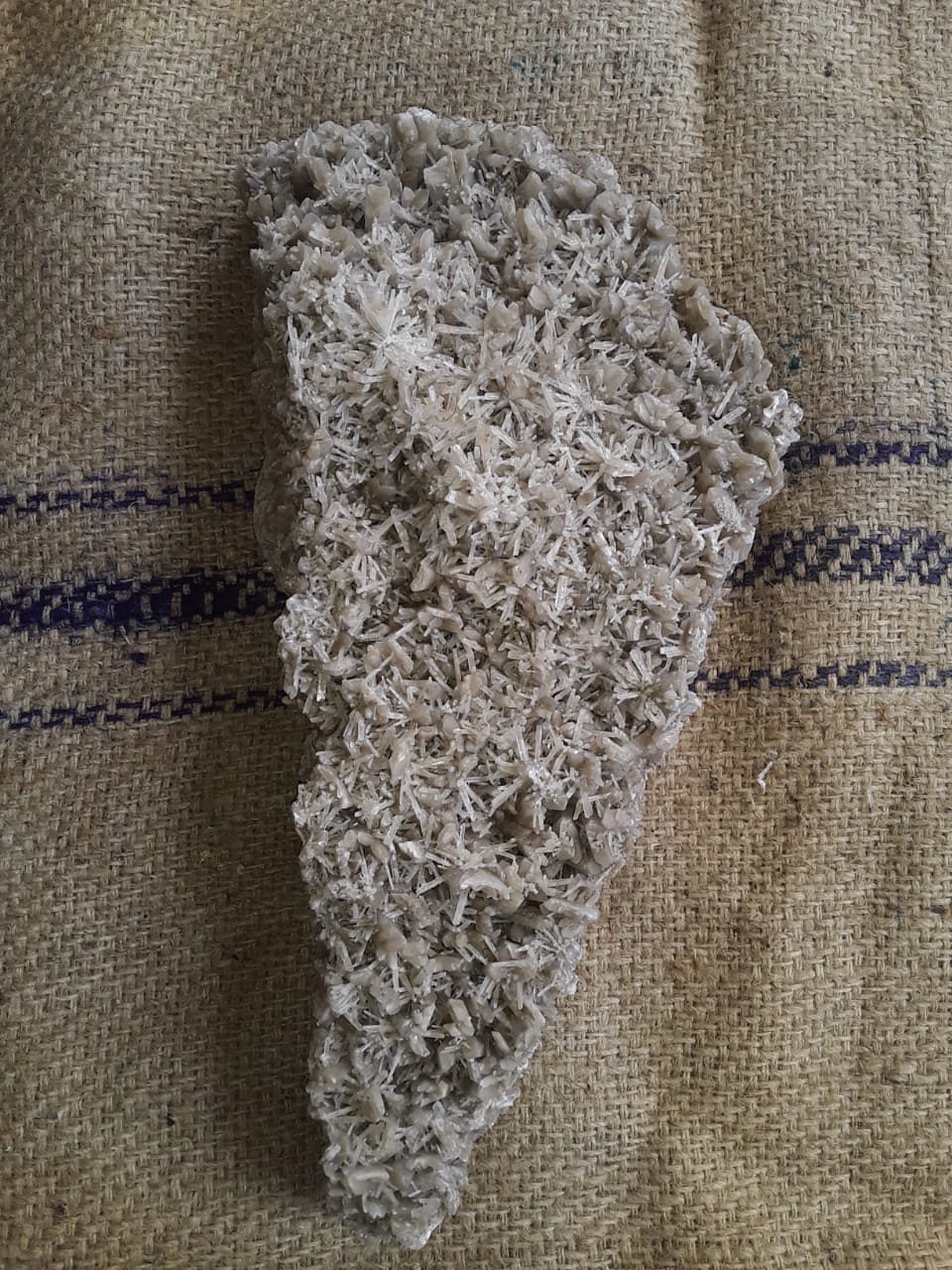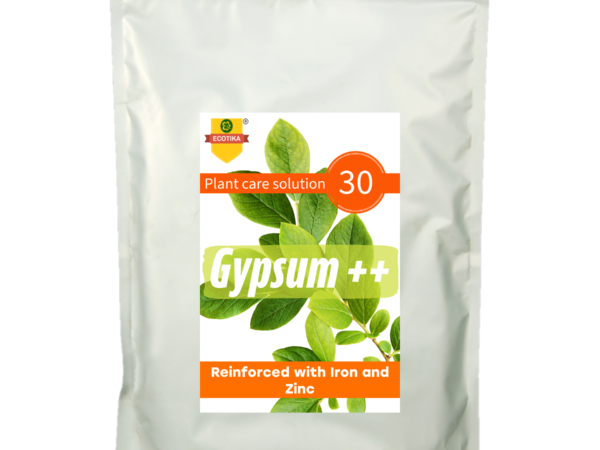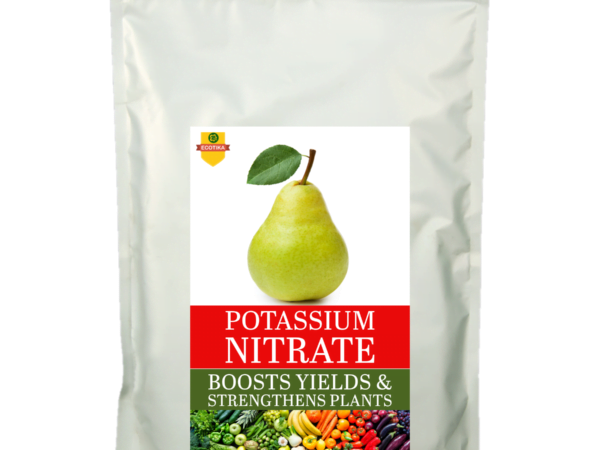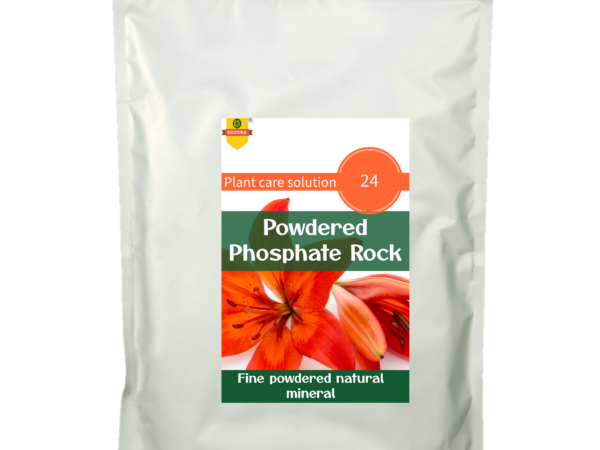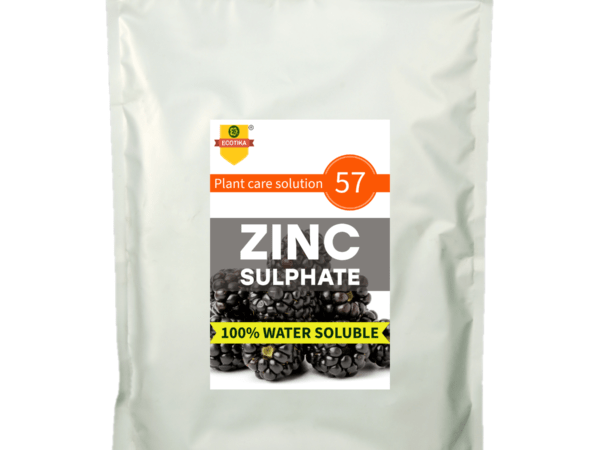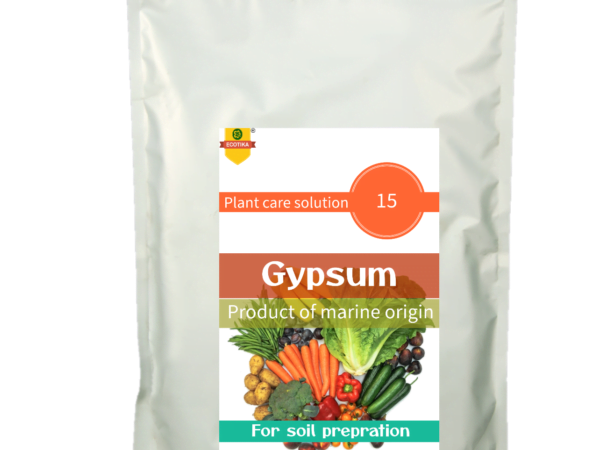Gypsum (Agriculture Grade) | Traditional Fertilizer | Soil Amendment 0.40 Kg
₹150.00
Gypsum is one of the earliest forms of fertilizer. It has been applied to agricultural soils for more than 250 years. Gypsum is a moderately soluble source of the essential plant nutrients, calcium and sulfur, and can improve overall plant growth. Gypsum amendments can also improve the physical and chemical properties of soils, thus reducing erosion losses of soils and nutrient concentrations (especially phosphorus) in surface water runoff.
Gypsum is a soluble source of the essential plant nutrients, calcium and sulfur, and can improve overall
plant growth. Gypsum amendments can also improve the physical properties of some soils (especially heavy clay soils). Such amendments promote soil aggregation and thus can
(1) help prevent dispersion of soil particles,
(2) reduce surface crust formation,
(3) promote seedling emergence, and
(4) increase water infiltration rates and movement through the soil profile.
It can also reduce erosion losses of soils and nutrients and reduce concentrations of soluble phosphorus in surface water runoff. Chemical properties improved by application of gypsum include the mitigation of subsoil acidity and aluminum toxicity. This enhances deep rooting and the ability of plants to take up adequate supplies of water and nutrients during drought periods. Gypsum is the most commonly used amendment for sodic soil reclamation and can also be included as a component in synthetic soils for nursery, greenhouse, and landscape use. Click here to read more…
Now you can buy Gypsum use guide and instructions at an affordable rates Click here to buy now
Out of stock
Description
Gypsum is one of the earliest forms of fertilizer. It has been applied to agricultural soils for more than 250 years. Gypsum is a moderately soluble source of the essential plant nutrients, calcium and sulfur, and can improve overall plant growth. Gypsum amendments can also improve the physical and chemical properties of soils, thus reducing erosion losses of soils and nutrient concentrations (especially phosphorus) in surface water runoff.
Gypsum is a soluble source of the essential plant nutrients, calcium and sulfur, and can improve overall
plant growth. Gypsum amendments can also improve the physical properties of some soils (especially heavy clay soils). Such amendments promote soil aggregation and thus can
(1) help prevent dispersion of soil particles,
(2) reduce surface crust formation,
(3) promote seedling emergence, and
(4) increase water infiltration rates and movement through the soil profile.
It can also reduce erosion losses of soils and nutrients and reduce concentrations of soluble phosphorus in surface water runoff. Chemical properties improved by application of gypsum include the mitigation of subsoil acidity and aluminum toxicity. This enhances deep rooting and the ability of plants to take up adequate supplies of water and nutrients during drought periods. Gypsum is the most commonly used amendment for sodic soil reclamation and can also be included as a component in synthetic soils for nursery, greenhouse, and landscape use.
Manufacturing process of this product
Large blocks of crystallized gypsum are extracted they are broken to smaller sub blocks cleaned and washed to get Agriculture grade Gypsum. And yes did we mention that all this is done using nature’s own processes and the entire process is not only chemical free but is also environment friendly.
Additional information
| Weight | 0.5 kg |
|---|---|
| Dimensions | 30 × 24 × 6 cm |

